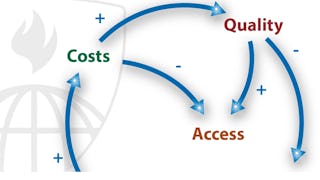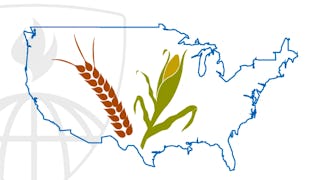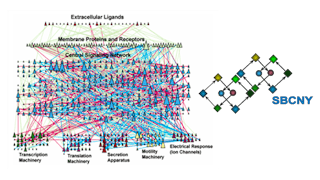Systems science has been instrumental in breaking new scientific ground in diverse fields such as meteorology, engineering and decision analysis. However, it is just beginning to impact public health. This seminar is designed to introduce students to basic tools of theory building and data analysis in systems science and to apply those tools to better understand the obesity epidemic in human populations. There will also be a lab in which students will use a simple demonstration model of food acquisition behavior using agent-based modeling on standard (free) software (netlogo). The central organizing idea of the course is to examine the obesity epidemic at a population level as an emergent properties of complex, nested systems, with attention to feedback processes, multilevel interactions, and the phenomenon of emergence. While the emphasis will be on obesity, the goal will be to explore ways in which the systems approach can be applied to other non-communicable diseases both nationally and internationally.

Enjoy unlimited growth with a year of Coursera Plus for $199 (regularly $399). Save now.

(205 reviews)
Skills you'll gain
Details to know

Add to your LinkedIn profile
6 assignments
See how employees at top companies are mastering in-demand skills

There are 4 modules in this course
Obesity, the facts of the case, and human populations through a systems science lens.
What's included
7 videos1 assignment
Complex systems, system dynamic models, and developing a stock and flow. This module includes a lab lesson.
What's included
6 videos1 reading2 assignments
Social networks and obesity, neighborhoods and noshing, and prices and poverty.
What's included
9 videos1 assignment
Agent based modeling and conceptual motivation for agent based modeling. This module includes a lab lesson.
What's included
8 videos2 readings2 assignments
Instructors

Offered by
Explore more from Public Health
 Status: Free
Status: FreeJohns Hopkins University
 Status: Preview
Status: PreviewThe University of Sydney
 Status: Preview
Status: PreviewJohns Hopkins University
 Status: Free Trial
Status: Free TrialIcahn School of Medicine at Mount Sinai
Why people choose Coursera for their career




Learner reviews
205 reviews
- 5 stars
73.17%
- 4 stars
20%
- 3 stars
4.39%
- 2 stars
1.95%
- 1 star
0.48%
Showing 3 of 205
Reviewed on Oct 12, 2023
Greate Course - looking forward to the advanced System Science Course by JHU
Reviewed on Mar 31, 2019
Fantastic course. Really thought provoking, and well presented. Useful as an intro to systems thinking, and as a way to understand the obesity epidemic in a nuanced way.
Reviewed on Oct 27, 2016
Good course, the lab classes can be improved further.not easily comprehensive

Open new doors with Coursera Plus
Unlimited access to 10,000+ world-class courses, hands-on projects, and job-ready certificate programs - all included in your subscription
Advance your career with an online degree
Earn a degree from world-class universities - 100% online
Join over 3,400 global companies that choose Coursera for Business
Upskill your employees to excel in the digital economy
Frequently asked questions
To access the course materials, assignments and to earn a Certificate, you will need to purchase the Certificate experience when you enroll in a course. You can try a Free Trial instead, or apply for Financial Aid. The course may offer 'Full Course, No Certificate' instead. This option lets you see all course materials, submit required assessments, and get a final grade. This also means that you will not be able to purchase a Certificate experience.
When you purchase a Certificate you get access to all course materials, including graded assignments. Upon completing the course, your electronic Certificate will be added to your Accomplishments page - from there, you can print your Certificate or add it to your LinkedIn profile.
Yes. In select learning programs, you can apply for financial aid or a scholarship if you can’t afford the enrollment fee. If fin aid or scholarship is available for your learning program selection, you’ll find a link to apply on the description page.
More questions
Financial aid available,





